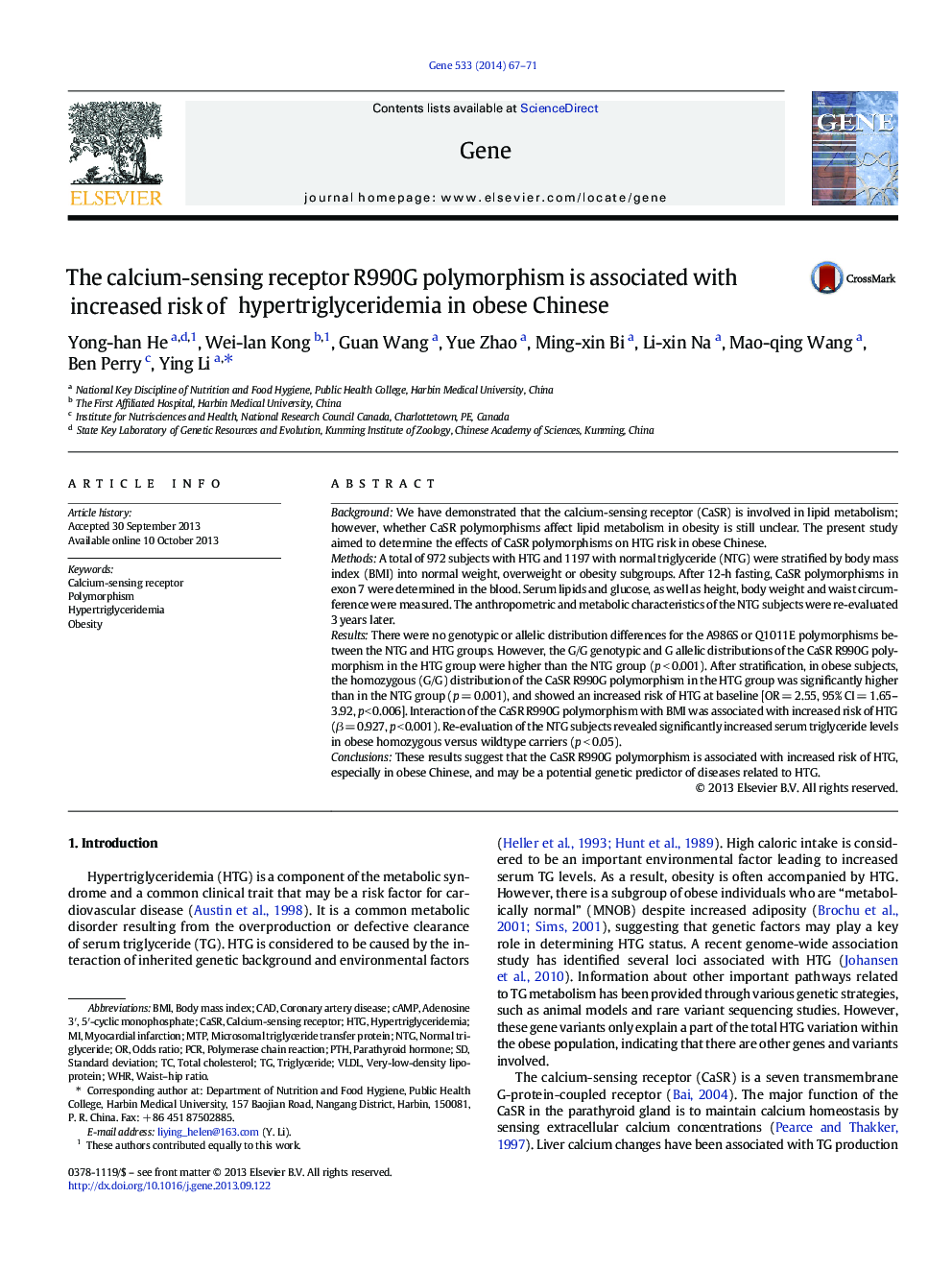| کد مقاله | کد نشریه | سال انتشار | مقاله انگلیسی | نسخه تمام متن |
|---|---|---|---|---|
| 2816708 | 1159950 | 2014 | 5 صفحه PDF | دانلود رایگان |

• The CaSR polymorphisms were determined in 2169 subjects.
• The CaSR R990G polymorphism was associated with hypertriglyceridemia.
• Triglyceride levels were increased in obese homozygous versus wildtype carriers.
BackgroundWe have demonstrated that the calcium-sensing receptor (CaSR) is involved in lipid metabolism; however, whether CaSR polymorphisms affect lipid metabolism in obesity is still unclear. The present study aimed to determine the effects of CaSR polymorphisms on HTG risk in obese Chinese.MethodsA total of 972 subjects with HTG and 1197 with normal triglyceride (NTG) were stratified by body mass index (BMI) into normal weight, overweight or obesity subgroups. After 12-h fasting, CaSR polymorphisms in exon 7 were determined in the blood. Serum lipids and glucose, as well as height, body weight and waist circumference were measured. The anthropometric and metabolic characteristics of the NTG subjects were re-evaluated 3 years later.ResultsThere were no genotypic or allelic distribution differences for the A986S or Q1011E polymorphisms between the NTG and HTG groups. However, the G/G genotypic and G allelic distributions of the CaSR R990G polymorphism in the HTG group were higher than the NTG group (p < 0.001). After stratification, in obese subjects, the homozygous (G/G) distribution of the CaSR R990G polymorphism in the HTG group was significantly higher than in the NTG group (p = 0.001), and showed an increased risk of HTG at baseline [OR = 2.55, 95% CI = 1.65–3.92, p < 0.006]. Interaction of the CaSR R990G polymorphism with BMI was associated with increased risk of HTG (β = 0.927, p < 0.001). Re-evaluation of the NTG subjects revealed significantly increased serum triglyceride levels in obese homozygous versus wildtype carriers (p < 0.05).ConclusionsThese results suggest that the CaSR R990G polymorphism is associated with increased risk of HTG, especially in obese Chinese, and may be a potential genetic predictor of diseases related to HTG.
Journal: Gene - Volume 533, Issue 1, 1 January 2014, Pages 67–71